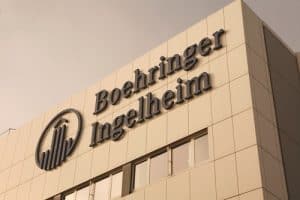Study boost for atrial fibrillation drugs
pharmafile | March 17, 2010 | News story | Research and Development | Pradaxa, VTE, Xarelto, apixaban, betrixaban
Two rival drugs have both shown benefits over warfarin in patients with atrial fibrillation, according to new research.
Boehringer Ingelheim’s Pradaxa (dabigatran) shows greater reductions in stroke in atrial fibrillation (AF) patients across all stroke risk groups.
And, in patients with non-valvular AF and at least one risk factor for stroke, a separate study showed Portola Pharmaceuticals and Merck & Co’s betrixaban reduced the incidence of bleeding.
Both sets of findings were presented at the 59th Annual Scientific Session of the American College of Cardiology in Atlanta.
In data from a sub-group analysis from the phase III RE-LY study, Pradaxa 150mg bid reduced the number of strokes in patients with AF when compared to well-controlled warfarin, irrespective of a patient’s risk profile.
Both this dose and 110mg bid were also associated with lower major bleeding rates in AF patients at low risk of stroke.
“For healthcare professionals treating patients with atrial fibrilliation at risk of stroke and systemic embolism, this sub-group analysis is very encouraging,” says lead author Dr Jonas Oldgren of Uppsala University Hospital in Sweden.
“It shows that dabigatran etexilate 150mg bid is the first treatment reducing strokes more than warfarin across the full spectrum of stroke risk in patients with AF.”
Currently many patients only receive aspirin, which is less effective than warfarin in reducing the risk of stroke, says Boehringer Ingelheim.
Pradaxa was first approved in Europe in 2008 as a preventative treatment for venous thromboembolic events in adults who have undergone elective total hip or total knee replacement surgery.
Merck and Portola’s betrixaban
In the other presentation, the phase IIb EXPLORE-Xa study found that a once-daily dose of betrixaban 40 mg demonstrated significantly less major and clinically relevant non-major (CRNM) bleeding than open label warfarin.
The risk for the 60 mg and 80 mg doses of betrixaban was similar to warfarin.
“Given that bleeding can be a significant safety issue for patients who take warfarin, there is a critical unmet need for anticoagulant therapy options,” said the study’s US national coordinator, Michael Ezekowitz, vice president of the Lankenau Institute for Medical Research.
The randomised, parallel group study examined three blinded doses of betrixaban compared with open-label, dose-adjusted warfarin in more than 500 patients.
Around three million people worldwide suffer strokes related to AF each year, half of them dying within one year.
In addition to Boehringer and Merck a number of other pharma companies are developing drugs to combat this, including Bayer and J&Js Xarelto (rivaroxaban) and Pfizer and Bristol-Myers Squibb’s apixaban.
Related Content

FDA approves Janssen’s Xarelto for blood clot prevention
Janssen’s Xarelto (rivaroxaban) has secured FDA approval for the prevention of venous thromboembolism (VTE), or …

Bayer’s Xarelto combo greenlighted by NICE for reducing CV events in artery disease
NICE has awarded final appraisal recommendation to Bayer’s Xarelto (rivaroxaban) at a dosage of 2.5mg …

Boehringer’s Pradaxa fails to meet Phase 3 endpoint in preventing recurrent stroke
Boehringer has announced that Pradaxa (dabigatran etexilate mesylate) has failed to meet its primary endpoint …






